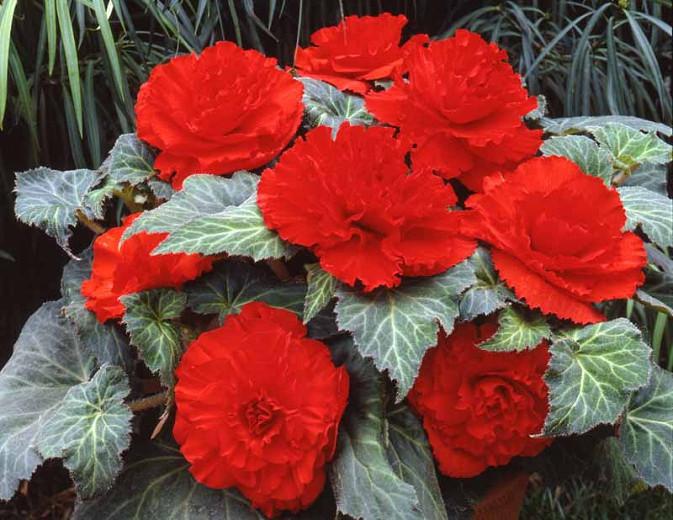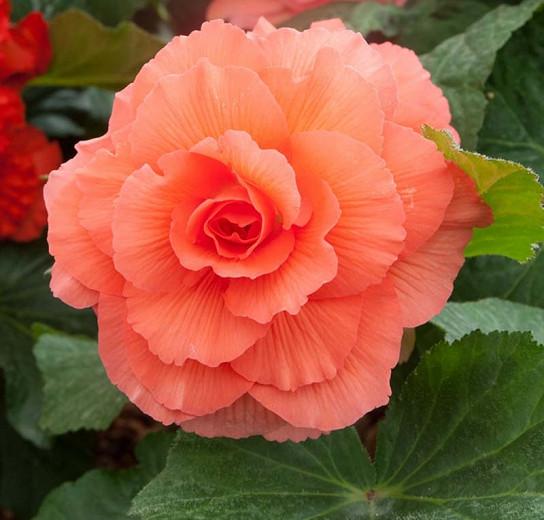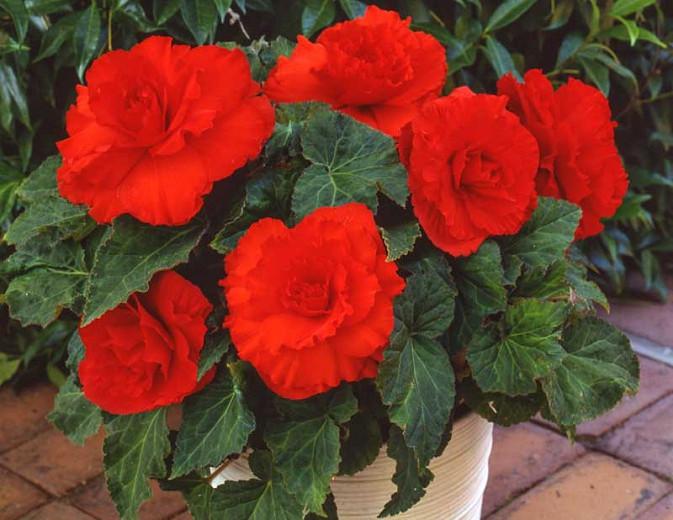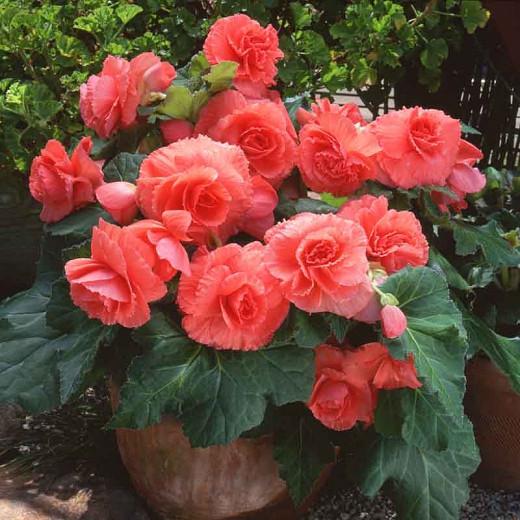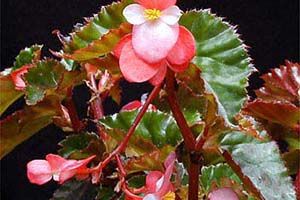are tuberous begonias poisonous to cats
Tuberous roots underground are the most poisonous part of begonia to cats. However gardeners should be aware that despite its alluring appearance the begonia can be surprisingly toxic if eaten.

Begonia Olivia Blackmore Langdon Begonia White Flower Farm Delphinium
Yes begonias are toxic to cats.

. Why Are Begonias Poisonous To Cats. This list includes a number of extremely popular household plants many of which might come as a surprise to newer cat owners. Your cat may get into.
But there are some. Begonias have over 1000 species and 10000 hybrids which usually contain oxalate crystals. Yes the ASPCA categorizes Begonias as poisonous to cats.
In wax begonias only the underground parts are toxic. In cooler climates begonias are commonly grown as ornamental houseplants. With over 1800 different plant species in the family Begoniaceae this genus is one of the largest of flowering plants.
As we discussed previously begonias are most definitely poisonous for cats. The most toxic part of the begonia plant is the root however the flowers juices and sap also contain small amounts of microscopic poison that can still affect your cat. The tuberous roots are the most toxic part of the plant.
If eaten begonias can result in an extreme burning in your pets mouth swollen tongue or lips and even difficulty swallowing. A popular and versatile summer plant these will cause intense burning and irritation in the mouth if eaten by dogs or cats. Some species are grown outdoors in the summer for their brightly colored flowers.
The most toxic part of the begonia is the tuberous roots underground. Soluble calcium oxalates are also commonly found in a few other plants which well list further on. When cats eat any part of a begonia they release the.
The roots of a begonia contain large quantities of oxalate and when this is ingested the oxalate crystals tend to embed themselves in tissue. The bulbs are the most poisonous part of the plant. Grazing animals horses cattle etc can potentially eat enough to cause kidney failure and death.
Tuberous begonias are the most dangerous plants of the Begoniaceae Family. Toxins are observed in the terrestrial species of Begonias which are upright rhizomatous or tuberous. However in general over 1000 species of Begonias are poisonous.
Symptoms of ingestion include excessive drooling vomiting and your cat. Tuberous begonias are the most poisonous part of the plant to cats. Most live only 2 to 3 years even with good care.
Vomiting salvation diarrhea large quantities can cause convulsions low blood pressure tremors and cardiac arrhythmias note. Tuberous begonias contain soluble calcium oxalate crystals with the highest amounts being found in the tuber. The sap of begonias can be toxic or irritating to nearly everything including humansthere are few flowers as recognizable and beautiful as begonias.
Ad Read More For Common Plants That Are Harmful For Your Cat. This list includes a number of extremely popular household plants many of which. Plants Your Cat Cant Eat The Symptoms If They Do.
Therefore if you have a kitten or cat that has mild to severe kidney disease begonias are particularly dangerous for them. Begonia ingestion is most commonly characterized by vomiting excess drooling and difficulty swallowing. Cat owners should be aware though that despite their aesthetic value these plant is considered toxic to cats.
Your cats mouth will most likely burn after eating strawberry begonias and vomiting. Cats and other small mammals are especially vulnerable to the effects due to the relatively small amount of begonia that will need to be eaten in order to cause damage and discomfort. Drooling or salvation Vomiting Kindy damage commonly noted in horses or grazing animals Reduce appetite.
With so many different begonia species identification can be difficult. Are Tuberous Begonias Poisonous To Cats - Grazing animals horses cattle etc can potentially eat enough to cause kidney failure and death. Are Begonias Poisonous to Cats.
In tuberous begonias only the tubers are toxic but they also have a biochemical component called cucurbitacin B which is found toxic for animals. Begonias are poisonous to cats because they contain toxins called soluble calcium oxalates. Begonias have over 1000 species and 10000.
Tuberous begonias contain soluble calcium oxalate crystals with the highest amounts being found in the. The ingredient that causes problems for cats is soluble calcium oxalates. The ASPCA has placed begonias in their toxic plants category as toxic for cats dogs and horses.
The majority of the Begonias are terrestrial whereas small portions of them are epiphytes. Calcium oxalates are the culprit for helping the body produce kidney stones. According to the ASPCA tubers are most harmful to cats.
When ingested these oxalate crystals may cause vomiting salivation and kidney failure in cats. In this article I list many common houseplants that are dangerous or toxic to cats so you can avoid bringing them into your home. In dogs and cats these crystals can cause vomiting and drooling if ingested.
Begonias grow well in containers and depending on the variety may tolerate full sun or total shade. If a cat eats a begonia flower or plant it can cause serious health problems. Tuberous begonias are the most poisonous part of the plant to cats.
Symptoms of Begonia Poisoning. However among these over 1000 species are reported to be found poisonous among cats and dogs. Additionally all parts of begonias are poisonous to cats with the most toxic ones being the tubers.
Pin on pet care the most common is epilepsy a blanket term for disorders that cause recurring seizures. Tuberous begonias are the most poisonous part of the plant to cats. Insoluble oxalates come from oxalic acid which irritates your cats mouth and digestive system.
However begonias especially their tubers are highly poisonous to household pets such as dogs and cats. 29 Poisonous Plants for Dogs and Cats Westminster Veterinary. 15 Begonia toxic to cats ideas Plants.
Begonias are toxic to cats. The danger comes from the insoluble oxalates that the plants have in their leaves. Cyclamen plants contain terpenoid saponins.
They are harmful or dangerous because they have soluble oxalates which when ingested may result in the following symptoms. Spotted begonia maculata plants are toxic to cats dogs and other family pets. Yes begonias are poisonous to cats.

Begonia Tuberosa Group Hybrid Tuberous Begonia Tuberous Begonia North Carolina Extension Gardener Plant Toolbox

Begonia Tuberosa Group Hybrid Tuberous Begonia Tuberous Begonia North Carolina Extension Gardener Plant Toolbox

Begonias Are Toxic To Dogs And Cats Toxic Plants For Cats Cat Safe Plants Begonia

Time To Jump Start Your Tuberous Begonias Longfield Gardens Tuberous Begonia Begonia Longfield Gardens

Elephant Ear Begonia Cat Safe Plants Cat Safe House Plants Plants

If You Ve Planted Any Of These Pretty Springtime Flowers Or Plants In Your Garden Keep Your Pet Far Away Planting Bulbs Plants Bulb Flowers

Begonia Guide How To Care For Your Indoor Outdoor Begonias Backyard Boss Begonia Tuberous Begonia Plant Guide

Several Tuberous Begonias In Flower Showing Off Huge Blooms Lukovichnye Cvety Begoniya Komnatnye Rasteniya

Bright Red Begonia Care Tips Https Www Houseplant411 Com Houseplant Begonia Plant How To Grow Care Indoor Flowers Flower Pots Amazing Flowers

B Madame Queen From Begonia Show 0714 Begonia Lenten Rose House Plants

Begonia Satin Jazz Begonia Rex Hybrid Plants Begonia House Plants

Apricot Tuberous Begonia American Meadows

Are Begonias Poisonous To Cats What Part Of Begonia Is Poisonous To Cats

Rex Begonia Care Indoors Rex Begonias Make Wonderful Houseplants They Can Be A Little Tricky But I Ve Written An Article Begonia Alocasia Plant Smart Garden
